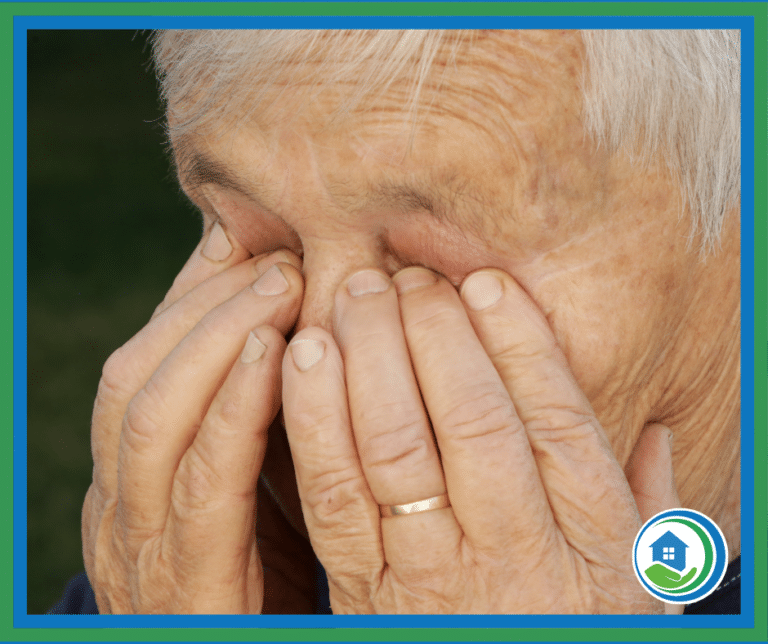Dry eyes are something that seniors often struggle with. There are lots of reasons why seniors develop dry eyes. Dry eyes can be a side effect of some kinds of medications. And dry eyes can be a symptom of some medical conditions. Environmental causes, allergies, and even the time of the year can factor into whether or not seniors have dry eyes.
Dry eyes can be more than irritating. They could be a symptom of a medical condition that is impacting the eyes. Seniors who experience chronic dry eyes should have their home care provider make an appointment for them with an eye doctor. Home care providers can also drive seniors to their eye appointments if your senior parent is unable to drive.
While seniors should always get their eyes checked if they have uncomfortable or irritated eyes they can also do these things to help manage dry eyes:
Use Artificial Tears
Over-the-counter artificial tear drops or lubricating eye drops can help alleviate dryness and provide temporary relief from discomfort. Seniors should use preservative-free eye drops, as preservatives may exacerbate dryness in some individuals. Applying artificial tears regularly throughout the day, especially in dry or windy environments, can help keep the eyes moist and comfortable. However, seniors shouldn’t use eyedrops without talking to their doctor first.
Seniors with chronic dry eyes should ask their eye doctor about prescription eye drops that can work to alleviate dry eyes safely over a long period.
Clean Eyelids
Keeping the eyelids clean and free of debris can help prevent blockages in the oil glands along the eyelid margins, which can contribute to dry eye syndrome. Seniors should gently clean their eyelids and lashes with a warm, moist washcloth or eyelid cleanser to remove any accumulated debris or crusts.
Use a Humidifier
Dry indoor air, particularly during the winter months or in air-conditioned environments, can exacerbate dry eye symptoms. Using a humidifier in the home can add moisture to the air and help prevent the eyes from becoming excessively dry. Seniors should aim for a relative humidity level of around 30-50% to make the house more comfortable without making it too humid. A humidifier can also help seniors breathe easier and sleep better at night.
Dust More
Certain environmental factors can worsen dry eye symptoms, including exposure to smoke, dust, pollen, and air pollution. Having home care to help with housework can reduce the allergens in the air. So can using an air purifier with a certified HEPA filter.
Take Regular Breaks from Screens
Prolonged screen time, whether from computers, smartphones, or tablets, can contribute to dry eyes due to reduced blinking and increased evaporation of tears. Seniors should take regular breaks from screen use, follow the 20-20-20 rule (take a 20-second break every 20 minutes and look at something 20 feet away), and adjust screen brightness and font size to reduce eye strain.
Wear Sunglasses Year Round
Seniors should take precautions to protect their eyes from the sun, wind, and other outdoor irritations. Wearing sunglasses can protect the eyes from wind, dust, and allergens as well as sun. That’s why seniors should wear sunglasses when they go out no matter what time of the year it is.
If you or an aging loved one are considering Home Care in Stephenville, TX, please contact the caring staff at Clear Path Home Care today at (817) 631-7710
Clear Path Home Care provides compassionate, high-quality home care in Bosque County, Hill County, Navarro County, Henderson County, Erath County, Somervell County, Johnson County, Ellis County, Parker County, Tarrant County, Dallas County, Kaufman County, Rains County, Hood County, VanZandt County, and Rockwall County in Texas.
- Parkinson’s Disease: Understanding Causes, Symptoms, and Treatment - May 23, 2024
- Unexpected Ways Companion Care Can Help Your Mom - May 14, 2024
- Rituals to Help a Senior Practice Mindfulness Everyday - May 9, 2024






